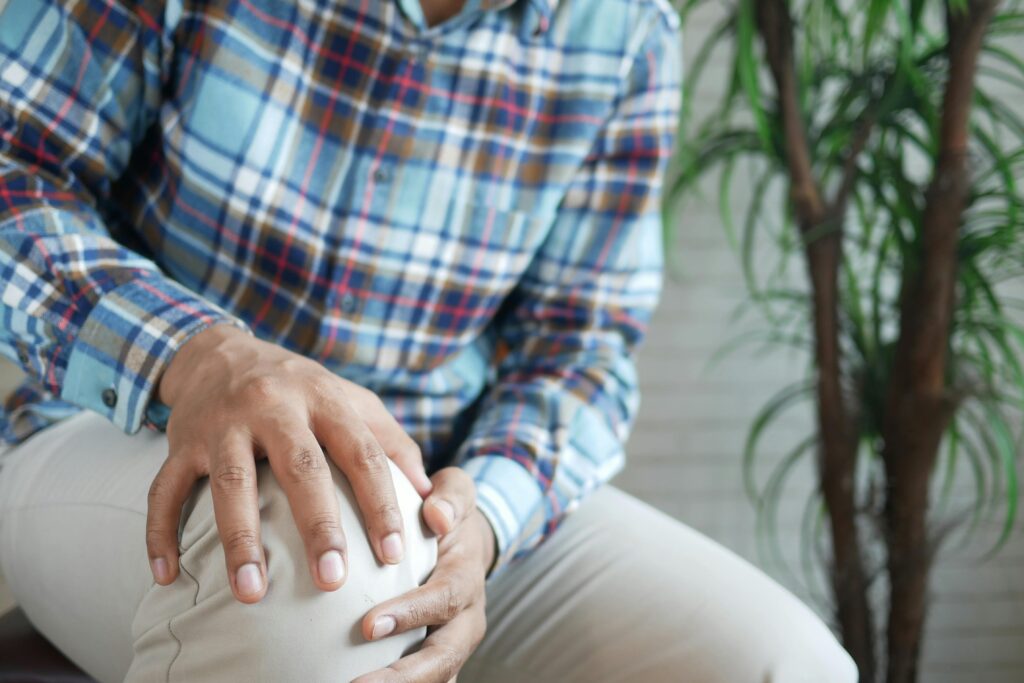Acupuncture and Arthritis: Managing Rheumatoid and Degenerative Arthritis Naturally
Arthritis is a debilitating condition that affects millions of people globally, with two common types being rheumatoid arthritis (RA) and degenerative arthritis, also known as osteoarthritis (OA). While conventional treatments such as medications and physical therapy are widely used, acupuncture has gained recognition as an effective, drug-free alternative that can help manage pain, inflammation, and joint function. Rooted in traditional Chinese medicine (TCM), acupuncture offers a holistic approach to addressing the symptoms and underlying causes of arthritis.

Understanding Rheumatoid Arthritis and Osteoarthritis
Rheumatoid Arthritis (RA) is an autoimmune disorder in which the body’s immune system mistakenly attacks its own tissues, causing inflammation, joint pain, and damage. RA typically affects smaller joints such as those in the hands and feet and can lead to long-term joint deformity if untreated.
Osteoarthritis (OA) is a degenerative condition that results from the breakdown of cartilage within the joints. Commonly affecting the knees, hips, hands, and spine, OA leads to pain, stiffness, and reduced mobility over time.
How Acupuncture Works for Arthritis
According to TCM, arthritis is often linked to blockages or imbalances in the flow of “Qi,” the body’s vital energy. These disruptions can lead to pain, stiffness, and inflammation. Acupuncture restores balance by stimulating specific acupoints to improve circulation, reduce inflammation, and relieve pain.
From a scientific perspective, acupuncture triggers physiological responses, including the release of endorphins (natural painkillers), improved blood flow, and reduced inflammatory markers, all of which contribute to symptom relief.
Key Benefits of Acupuncture for Arthritis
- Pain Relief: Acupuncture helps alleviate both acute and chronic joint pain by stimulating the release of endorphins and reducing the body’s perception of pain.
- Reduction of Inflammation: By targeting inflammatory pathways, acupuncture helps reduce swelling and stiffness, particularly in inflamed joints.
- Improved Joint Mobility and Function: Acupuncture enhances circulation, which promotes the delivery of oxygen and nutrients to affected areas, supporting healing and improving joint mobility.
- Stress Reduction: Chronic pain can lead to emotional stress, which can exacerbate arthritis symptoms. Acupuncture helps reduce stress and improve overall well-being.
- Support for Autoimmune Regulation (RA): In cases of RA, acupuncture helps modulate the immune response, reducing the severity of flare-ups and promoting long-term symptom management.
Conditions Acupuncture Can Address
- Rheumatoid Arthritis (RA): Alleviates pain, stiffness, and inflammation while helping regulate the immune system.
- Osteoarthritis (OA): Reduces joint pain, improves flexibility, and slows the progression of cartilage degeneration.
- Joint Injuries or Overuse: Supports recovery and reduces inflammation in cases of tendonitis or other joint-related injuries.
What to Expect During Treatment
An acupuncture session typically begins with a thorough assessment of your symptoms and overall health. The practitioner will identify specific acupoints related to joint pain and inflammation, which may include points on the hands, knees, lower back, and feet.
Fine needles are inserted gently and left in place as the patient relaxes. The number of sessions required varies based on the severity of the condition and the individual’s response to treatment.
Safety and Considerations
Acupuncture is generally safe when performed by a licensed practitioner. Some individuals may experience mild side effects, such as temporary soreness or bruising at the needle site. It is important to inform your practitioner of any medications or medical conditions to ensure the treatment is customized appropriately.
Complementary Approaches
Acupuncture can be combined with other treatments to maximize its effectiveness, including:
- Physical Therapy: Enhances joint function and mobility.
- Anti-Inflammatory Diet: Helps reduce systemic inflammation.
- Herbal Remedies: Certain TCM herbs can complement acupuncture by promoting joint health and reducing pain.
Conclusion
Acupuncture offers a holistic, effective approach to managing both rheumatoid and degenerative arthritis. By addressing pain, inflammation, and underlying imbalances, it can improve mobility and enhance quality of life. If you are considering acupuncture as part of your arthritis management plan, consult a licensed practitioner to create a treatment approach tailored to your needs.

























